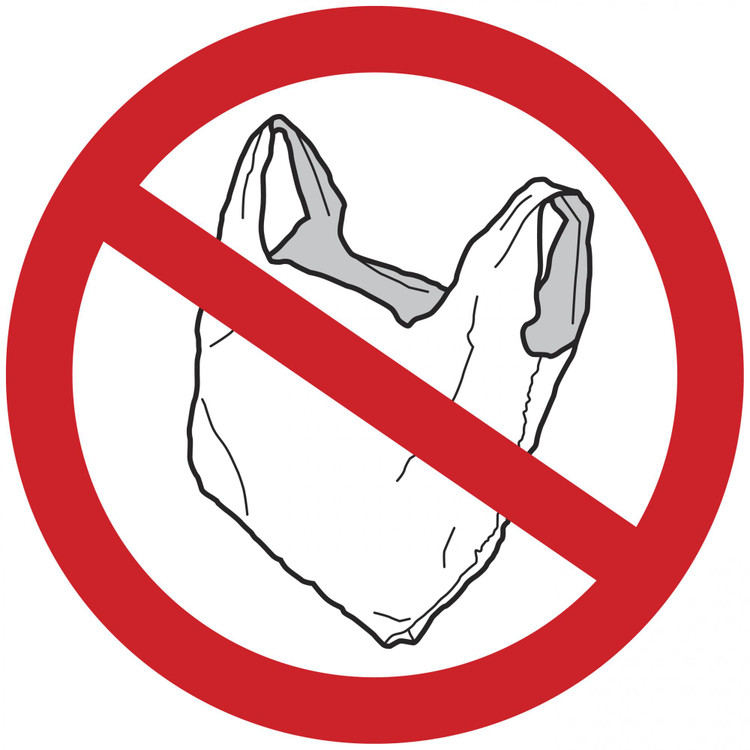When Will Australia Really Ban The Plastic Bag?
8th Oct 2015
Plastic bag use in Australia is certainly much reduced from what it used to be, thanks to the banning of single use bags in 2 states and 2 territories, but the four biggest states are not yet on board.
Clean Up Australia (led by Ian Kiernan) is constantly measuring plastic bag use in Australia and estimated as at March 2015 more than 3 billion plastic bags are used every year. Of these, about 50 million end up as litter. These lightweight plastic bags do not degrade for decades, and because they’re so light, they can travel deep into the ocean or the bush and infiltrate these natural ecosystems.
While NT (banned 2011) and SA (Australia’s first entire state to do so, banned in 2009) reported an increase in the purchase of plastic bin liners after the bans were introduced, overall, plastic bag usage went down. This downward trend can only continue if the other Australian states join the fight.
Even if all the states haven’t yet jumped on the banning bandwagon, some retailers are doing their bit, Australia wide. Target began using bioplastic bags in 2009, selling them to customers at 10c each and giving the proceeds of sales to the Alannah and Madeline charity. They’ve since ceased to charge for the bags, but still offer them as an alternative to plastic.
Plastic not fantastic in the ocean
A study by the European Commission discovered that “in the North Sea, the stomachs of 94 percent of all birds contain plastic. Plastic bags have been found in stomachs of several endangered marine species, such as green turtles, loggerhead turtles, leatherback turtles, black footed albatrosses, and harbour porpoises.”
In sum, “at least 267 different species are known to have suffered from entanglement or ingestion of marine litter.”
The southern oceans have similar problems. While the entire state of Tasmania didn’t ban the plastic bag until 2013 the local area of Coles Bay banned them in 2003 to protect the whales that migrate off the coast who were ingesting plastic bags along with their usual fare of fish, squid or krill.
Plastic bag bans around the world
The world’s two most populous countries, China (2008) and India (2002) have banned single use plastic bags, although enforcement continues to be a problem. Both countries were experiencing severe problems with blocked sewerage, general waste and the death of livestock. In fact, animals consuming and choking on plastic bags has lead many countries and states worldwide to ban or reduce plastic bag usage. In India it was the threat to the sacred cow that led to the ban.
Many European countries impose a charge on plastic bags rather than banning them altogether. Like most attempts at reducing plastic bag use, there have been mixed results. Ireland was the first country to charge consumers for plastic bags, beginning in 2002. Any revenue is put into an Environment Fund, which has made it a relatively popular initiative.
So when will Australia’s big states make a move?
Way back in the 2007 election campaign, Kevin Rudd and Peter Garrett pledged to ban plastic bags, but several state governments opposed the move and the estimated costs ($578 million) ended up being a show stopper.
In June 2015 QLD announced they would consider a ban. This is still only a decision to consider, but it’s a start. It’s also about time. Back in June, Queensland’s Environment Minister Steven Miles told ABC news there was more litter in Queensland than in any other state, with discarded rubbish recorded at levels almost 40 per cent above the national average. (credit ABC News)
There is no current official plan for NSW to ban the bag despite pressure from lobby groups such as Responsible Runners, who recently presented the State Government with a 12,000 signature petition requesting the ban. There’s even a Facebook Group called Plastic Bag Free NSW but no official commitment.
It’s still possible to make your own difference
Many people use reusable bags, usually sold at supermarkets for around a dollar. These bags are sturdy, multiple use bags and they’ve been around for a while. Shopping bag systems like the Trolley Bags take this concept a step further. It’s a set of bags that fit in your trolley, making the supermarket experience easier and kinder to nature at the same time. So even if your state hasn’t yet banned the bag, you can ban it from your own shopping trips and make a difference anyway.

